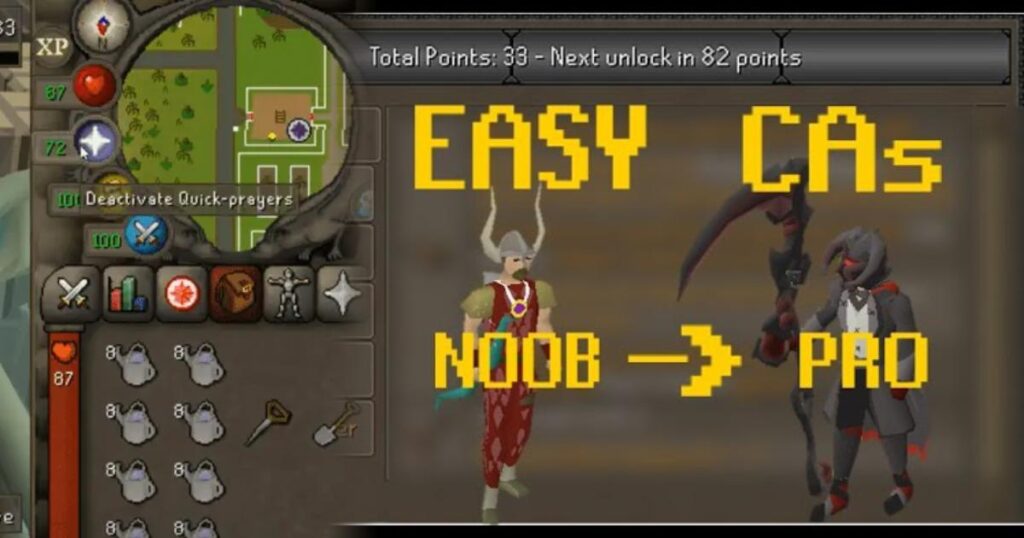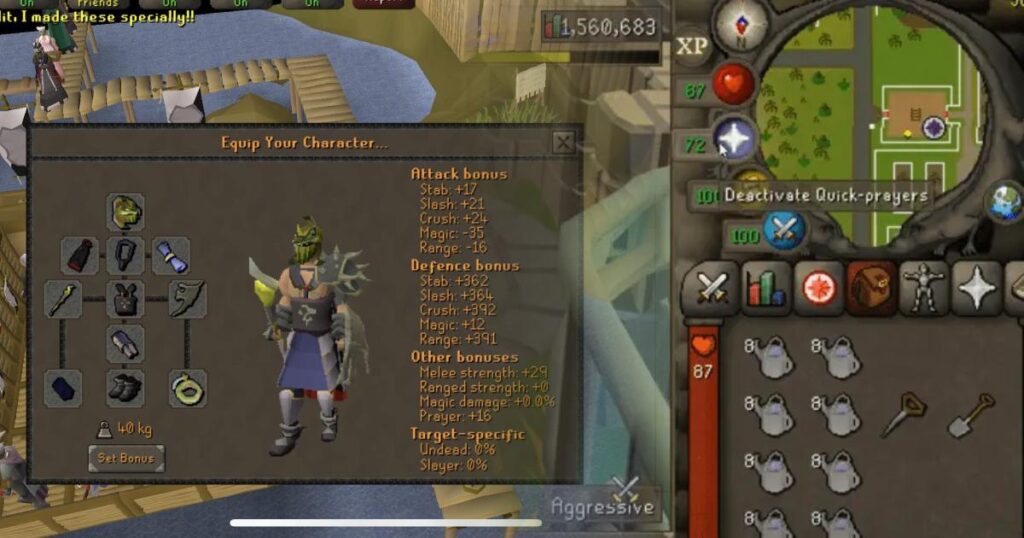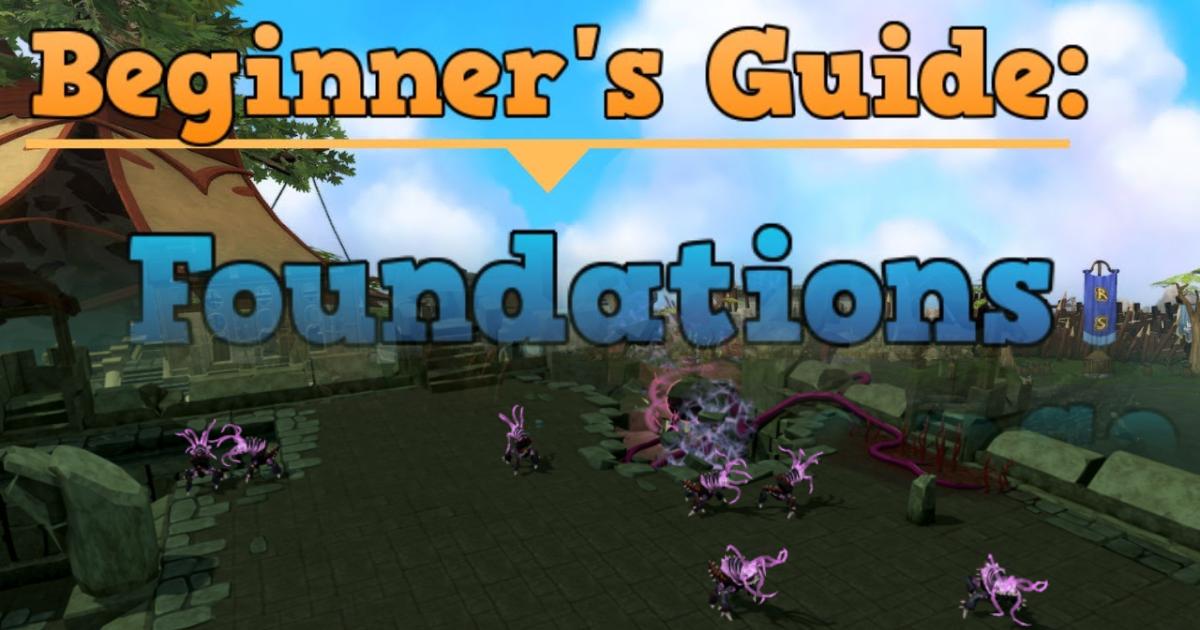Embarking on your adventure in the mystical realm of “Runescape” is exhilarating but can also be a bit overwhelming. This beginner’s guide, titled “Runescape Beginners Guide: Essential Tips and Tricks for New Players,” is poised to help smoothen your journey into this enchanting world.
Providing nifty tactics, essential gameplay mechanics, and tried-and-tested strategies, this guide is ready to swiftly transform you from a novice into a seasoned player with a wealth of knowledge to navigate through the complex yet thrilling world of Runescape.
Gear up, dear player, for an immersive gaming experience is just a guide away.
Understanding the Quests
Introduction to quests
In the land of Gielinor, the vast world of Runescape, quests are not just tasks, but they are tales waiting to be untold. They are your gateway to plunge into the rich lore of the game and your ticket to gaining hefty rewards and leveling up. Unlike many other games, Runescape doesn’t categorize its quests into ‘main’ or ‘side’ quests. Each quest has its unique story, objectives, challenges, and rewards.
Importance of quests in leveling up
Quests in Runescape are a major source of experience points (XP), enabling your character to level up faster. They also grant many other rewards, such as unique items, special abilities, or access to new areas in the game. Quests also provide direction and goals, helping new players to make steady progress while exploring the open world of Gielinor.
Common beginner quests and their rewards
There are many beginner-friendly Quests in Runescape, including ‘Cook’s Assistant,’ ‘Sheep Shearer,’ and ‘The Restless Ghost.’ Each of these quests offer their unique rewards, like cooking experience points and accessing new abilities, vital to a beginner player’s growth in the game.
Choosing Your Character
Character races in Runescape
Runescape is home to various races: Humans, Elves, Dwarfs or Gnomes to mention a few. Each race has its unique abilities, strengths, and weaknesses. Still, your gameplay won’t be significantly affected by your choice – enjoy the immersive lore and aesthetic tastes that each race brings to the game.
Character classes and their specialties
Unlike many role-playing games, Runescape does not lock a character into a single class. At any time, your character can train and improve in any skill, from combat-related ones like strength and magic to non-combat ones like cooking or crafting, allowing a high degree of flexibility and customization to suit your playstyle.
Optimizing your character build for beginner games
There is no one-size-fits-all approach to character customization in Runescape. As a beginner, it is advisable to train your combat stats at the start, as being able to defend yourself is pretty fundamental in Gielinor. Alongside combat, consider working on some gathering skills (such as fishing or mining) and processing skills (such as cooking or smithing) to ensure you have a stable source of income and resources.
Acquiring and Managing Resources
Basic resource types in Runescape
There are numerous resources in Runescape, including raw materials like ores, fish, and logs and products such as cooked food, metal bars, and crafted items. Gold coins are the primary currency in Runescape and are vital for trading and purchasing items.
Earning and gathering resources
Resources can be earned in various ways: gathering skills such as fishing, mining, and woodcutting; completing quests, mini-games, and random events; and defeating monsters who often drop useful loot.
Effective resource management tips for beginners
Managing resources in Runescape is all about balance. It is important to ensure you have adequate supplies for your adventures, but hoarding too many unnecessary items may leave you with a cluttered inventory and less space for valuable loot. Selling excess resources can also be a steady income source.

Mastering Basic Combat
Introduction to combat mechanisms in Runescape
The combat system in Runescape offers a lot of depth. Players can engage in melee, ranged, or magic combat, each with its unique strengths and weaknesses. You also have ‘defense’ as a vital skill to resist attacks.
Effective combat strategies and tactics for beginners
To improve your combat efficiency, learn about the combat triangle – Melee beats Ranged, Ranged beats Magic, and Magic beats Melee. Enhancing your combat skills isn’t just about training; it’s also about equipping the right gear and choosing the right strategy for different opponents.
Runescape combat: PvP versus PvE
In Runescape, you can engage in Player vs. Player (PvP) combat in specific areas or activities or play against the environment (PvE) fighting against monsters. While PvP requires a deep understanding of the combat system and good equipment, PvE offers an easier starting point for beginners with the opportunity to earn some excellent rewards.
Navigating the Game World
Understanding the game map
Your journey in Runescape begins in Lumbridge, but there’s a whole world waiting to be discovered. Make use of the map to navigate through the vast land, improving your geographic knowledge of Gielinor over time.
Importance of Exploration
Exploring serves dual purposes: discovering beautiful landscapes and exciting locations in the Runescape world and encountering valuable resources, powerful equipment, and secret quests hidden across Gielinor.
Key locations for new characters
Places like Varrock, Lumbridge, and Burthorpe offer beginner-friendly training spots, quests, and resource collection areas. Don’t miss the Grand Exchange in Varrock, a bustling trading hub where you can sell or buy items from other players.
Crafting and Smithing Basics
Introduction to crafting and smithing
Crafting and smithing are two vital skills in Runescape that allow you to create many items. From leather armors and gold amulets to steel swords and mithril axes, becoming a capable crafter and smith will prove to be a rewarding endeavor.
Importance of crafting and smithing in Runescape
Crafting and Smithing are not only great ways to become self-sufficient, creating your gear and equipment, but they also offer a reliable source of income, making high-demand items to sell to other players.
Beginner crafting and smithing tips
Start by gathering basic materials like cowhide for crafting and copper and tin ores for smithing. Stick to making items that have high demand in the market, such as leather gloves or bronze daggers, to ensure high profitability. As always, practice makes perfect!

Optimizing XP and Leveling Up
Understanding XP in Runescape
Experience points, or XP, are awarded for performing various activities in Runescape. As you accumulate XP in a particular skill, your level in that skill increases. Each level-up can unlock new abilities, recipes, and tasks, allowing deeper immersion in the game.
Best practices for earning XP
Perform tasks relevant to the skill you want to level up. For combat skills, defeat monsters; for crafting, create new items. Taking part in quests and mini-games can also offer hefty XP rewards.
Tips to level up quickly for beginners
Balance skill training to level up evenly. Invest in XP-boosting items and take advantage of Double XP events. Prioritize quests that grant lucratively high XP, and remember to enjoy the journey alongside power leveling.
Getting Started with Mini Games
Popular mini-games in Runescape
Mini-games are optional activities in Runescape, offering entertaining ways to earn rewards. Some popular beginner mini-games include the Fishing Trawler, The Barrows, and Pest Control.
How to play and win mini-games
Each mini-game has its gameplay and rules – take time to understand them and develop strategies and skills to excel in each game.
Rewards and benefits of mini-games
Mini-games rewards range from XP and coin rewards unique items, and sometimes even rare cosmetics. Participating in mini-games also adds variety to your gameplay, breaking the monotony of skill grinding.
Understanding Player Interaction
Interaction features in Runescape
Runescape is an online multiplayer game where you’ll share the world of Gielinor with thousands of other players. You can interact through chat, trade, cooperative gameplay, and PvP combat.
Role of interactions in enhancing the game experience
Interactions in Runescape do not just facilitate trade and combat, but they also foster a sense of community. Joining clans, participating in group activities, and participating in lively world events can immensely enrich your Runescape experience.
Tips for trading and teaming up with other players
Be courteous and respectful in your interactions, whether it is trading, teaming up for quests or mini-games, or general communication. Safeguard against scams by trading through the secure Grand Exchange, and remember that valuable connections and friendships can be formed in Gielinor!
Earning and Managing Gold
Introduction to RuneScape economy
Gold is the primary currency in Runescape and plays a key role in the game’s player-driven economy. From purchasing a new weapon to buying a pizza, you’ll need gold.
Best ways for new players to earn Gold
You can earn gold by selling craft items, mining precious ores, fishing valuable fish, or looting monsters. Completing quests and participating in mini-games can also award significant amounts of gold.
Tips for efficient gold management
As a beginner, it’s essential to manage your gold efficiently. Only buy what you need and sell items that you don’t need. Always compare prices before you buy or sell, and take advantage of price fluctuations – buy low and sell high!

